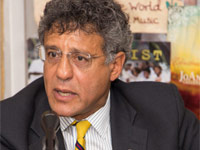There are a range of activities and events over which the prime minister and his Cabinet can authentically preside; but job creation is hardly one of them.
The big money that must be sunk into productive activities to bring jobs into fruition must of necessity be spawned by robust investment spending. If jobs are to grow at the rate we expect, then the millions or billions of investment spending would have to come from somewhere.
This big money has no access point in the public purse, which is more or less always chronically bare.
And if our politicians happen to have sizeable bank accounts in their own names, they would surely not want us to know about that.
They also would not want us to know that the only job they can truly create would be their own, and of course the lucky Joe who in an instant becomes a public servant.
But they want us to know if we come to them for a job, they will certainly find it as their job-creating power is unlike any other – not the entrepreneur, not the businessman or other investors who collectively make the job market tick.
So in every election cycle this little piggy goes to market and this little piggy gets sold. We are then left to figure this out on our own.
For the winners political power is a wonderful thing, except that you will need to convince your constituents that it has its limits. You will need to deal with job growth in the same way a farmer tends to his crops – you must clear the ground, nourish the soil and tenderly pluck up the weed.
Then you must wait and in time the results will be seen. If this waiting game sounds Micawber-like, then it is probably so. Government empowers; it rarely creates. Fundamentally, the economy has its own will.
Our politicians in the privacy of their own thoughts know this. And so do politicians elsewhere. The two American presidential candidates know this too, as a few months ago their fiery exchange on public policy was as illuminating as it was defining. And the ongoing debate had job creation at its heart.
If it is assumed that government has a job-creating power, Romney clearly did not think so, and he expressed that view. But his preposterous commitment that he, singlehandedly, would be the purveyor of millions of high-end, high-paying jobs if he would be elected president, was disingenuous to the core.
Romney did not roll out a jobs plan. So if he had decided to create these jobs magically, he surely did not help himself by giving the public a demonstration. Then Romney went on to compound his fiction with the ridiculous proposition that he will make big cuts in government spending while boosting jobs at the same time.
There is nothing in economic theory that connects reduced government spending and job growth, and it was unfortunate that Romney got away with it. But I suspect that Romney was wandering in political rather than economic territory.
Aside from Romney, and if the truth be told, it is as an enabler rather than a direct job creator that government comes into significance. Only in an economic environment that incentivizes investors and investment does the job market flourish.
It is when government champions the cause of education and training, makes crime control a priority, and helps business access capital, expertise and new markets, that it lives up to its best promise.
It is when government improves and enhances The Bahamas as the most desirable location in the Caribbean for international business that it lives up to a higher purpose.
All forms of protectionism – be it strict controls on trade or capital or labor – should be resoundingly resisted. There is no argument for protectionism under which its defenders can take cover. The economic literature is unambiguous and conclusive. No one dams the river, and when the water becomes stagnant, you foolishly expect the fish to remain plentiful.
It is wrong to encourage protectionism, as even the baby steps are alarming enough and the slippery slope even more so. The needless drift into labor policy uncertainty is ill-advised. If a high priority is the protection of jobs for Bahamians, then through expanded opportunities for education and training, the government can undoubtedly do much better at it.
I am convinced, and even more so today, that an educational system, with its architecture bent towards vocational education, would be the ideal way to help unemployed Bahamians find work. I got some vindication of this when hoteliers cited thousands of job vacancies that exist that the unemployed cannot presumably fill.
With a labor force so insufficiently skilled, and politicians dithering, it is not surprising that the unemployed sink when jobs go a begging. In the high school system, the government must be prepared to accept that in academic tests such as the BGCSE, the pool of high achievers is unlikely to grow much bigger, even if more money is invested in the process. Historically, this has always been the case and many countries around the world know this.
A simple, workable and low-cost solution is a curriculum with more broad appeal to the less academically gifted, and remedial programs that help under-performing students overcome serious deficits in reading, writing and calculation.
While jobs grow because of an empowered workforce, the same thinking applies to a crime-free environment and one that is largely peaceful. The government that fights criminal activity is also promoting job creation as well. In a safe business environment, existing businesses are incentivized to expand, and new ones enter the marketplace.
When crime is rampant, losses sustained by business are impounded in the pricing, and all of us pay. We will never know how many jobs are lost and how many businesses shut, because violent gunmen have put us fear.
The international development bank report “Antipodes to Violence”, while not belittling the strategies of enhanced policing and stiffer sentencing, is emphatic that the upsurge in violence and criminal activity in Latin America and the Caribbean has its root cause in the steady breakdown of civic culture. Efforts to restore and rehabilitate civic culture is government’s challenge. Job creation depends on it.
Through it all, we should not expect our politicians to lose interest in this job creation story any time soon. They put themselves deceptively at the center of it. The truth is that you cannot deliver promises; you deliver results. And if you have no control over the latter, you should at least say so.
By: Wesley Hicken



